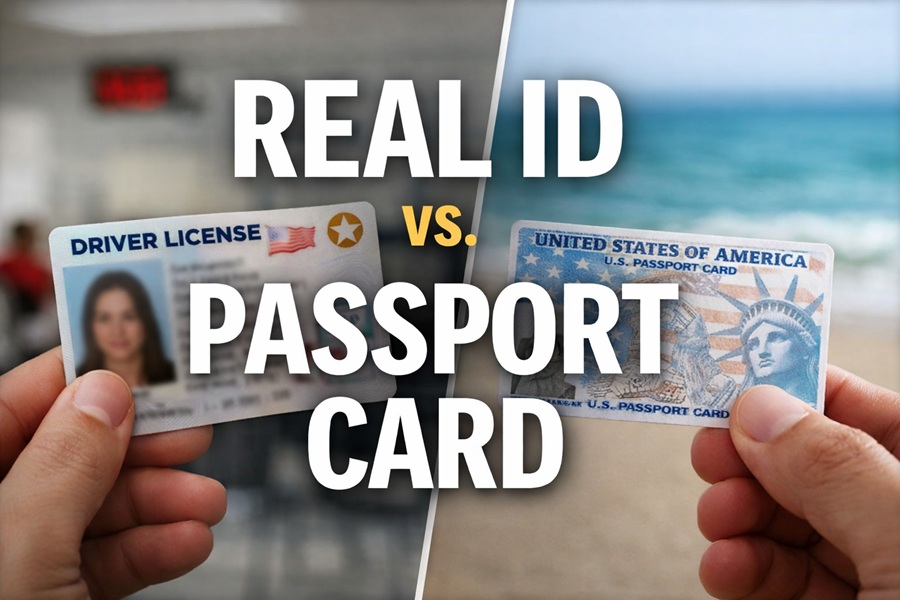Traveling with a pet? Read our guide and Q&A for pet passports!
Traveling with a pet? Whether you're taking a road trip across the U.S. or planning an international adventure, it’s important to know the rules and documents required for your furry companion. Many pet owners wonder if their dog or cat needs a "pet passport". While the answer depends on where you're going, one thing is clear: traveling with pets involves planning ahead.
This post breaks down what a pet passport is, when you need one, and what alternatives are required for domestic and international pet travel.
What Is a Pet Passport?
A pet passport is an official collection of documents that verifies your pet's identity, health, and vaccination records - particularly for international travel. It is not a single physical passport book like a human's, but a set of veterinary certificates and endorsements that vary depending on the destination country.
In the U.S., there is no formal “pet passport” document issued by the government. Instead, you'll need to collect the appropriate health paperwork from a licensed veterinarian based on the rules of the country you're visiting.
Do I Need a Pet Passport for Domestic Travel in the U.S.?
No. For domestic travel within the United States, you do not need a pet passport. However, you may still need:
- A valid rabies vaccination certificate
- A health certificate (Certificate of Veterinary Inspection) issued by a licensed veterinarian, especially for airline travel
- Proof of vaccinations and parasite treatment (depending on airline or lodging requirements)
- A compliant carrier or crate for airline travel
Be sure to check the specific policies of the airline, hotel, or state authorities for additional requirements.
Do I Need a Pet Passport for International Travel?
Yes – in most cases. International travel with a pet requires a combination of documents that function as a “pet passport.” These typically include:
- A microchip for identification (required by many countries)
- A valid rabies vaccination certificate
- A health certificate (APHIS Form 7001) completed by a USDA-accredited veterinarian
- An endorsement from your local USDA Animal and Plant Health Inspection Service (APHIS) office
- Additional tests, treatments, or quarantines depending on your destination
Each country has its own import rules, so it's critical to check with your destination's embassy or consulate, or visit the USDA Pet Travel Website for up-to-date guidelines.
How Do I Get a Pet Passport?
To prepare your pet for international travel:
- Check the destination country’s pet entry requirements (via USDA or embassy)
- Schedule a vet appointment with a USDA-accredited veterinarian
- Get a microchip implanted if not already done
- Ensure rabies and other vaccinations are current
- Have your vet complete the required health certificate
- Send documents to a USDA APHIS office for official endorsement
- Retain all paperwork and bring it when you travel
Plan ahead—some countries require documentation to be issued and endorsed within a tight timeframe (often within 10 days of travel).
Frequently Asked Questions
Q: What is APHIS Form 7001 and do I need it?
A: Yes, this is the U.S. interstate and international health certificate used for pets. It must be signed by an accredited veterinarian and endorsed by APHIS for international use.
Q: Do I need to quarantine my pet when traveling abroad?
A: It depends. Some countries (like Japan or Australia) require quarantine periods. Others may waive quarantine if all paperwork is correct and deadlines are met.
Q: Can I use my pet's vaccination records alone?
A: No. While vaccination records are required, most international destinations also need an official health certificate endorsed by USDA APHIS.
Q: Can my pet travel in the cabin with me?
A: That depends on the airline and the size/breed of your pet. Most airlines allow small pets in the cabin with prior approval and a compliant carrier.
Q: Do emotional support animals (ESAs) need different documentation?
A: As of 2021, most U.S. airlines no longer recognize ESAs as service animals. ESAs now follow the same rules as pets, including documentation requirements.
Final Thoughts
Traveling with pets requires careful planning, but with the right paperwork and preparation, it's entirely doable. While there's no universal U.S. "pet passport", the health documents you gather and have endorsed will serve the same purpose.
If you're traveling internationally, start the process early - sometimes 30 days or more in advance - and consult your vet about your destination's requirements. And if you're traveling within the U.S., be sure to check airline and state guidelines to avoid last-minute surprises.
Need help with your own travel documents? While we don’t offer pet passport services, we’re experts in getting your passport or visa expedited fast, so you and your four-legged companion can travel stress-free.


